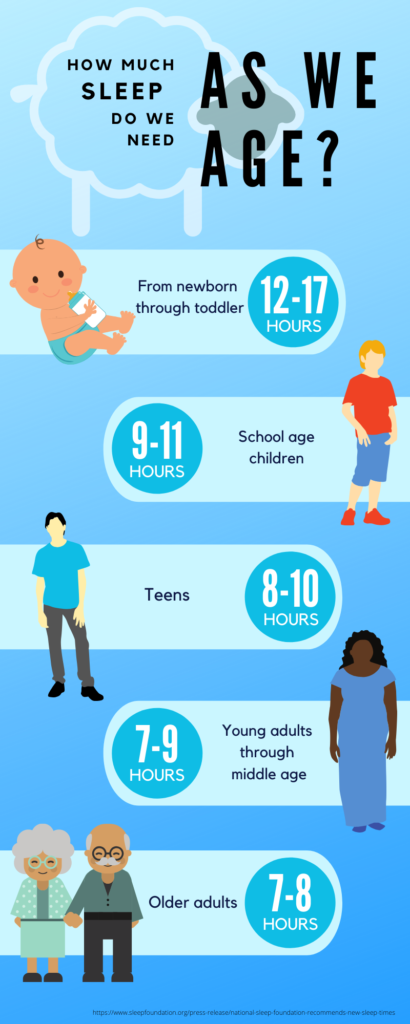
Sleep is one of the most important activities of our day. Not getting enough sleep can affect everything from productivity and alertness, to body weight and mental health. As a medical billing company for sleep and pulmonary doctors, AMPM is aware of how sleeping disorders are a growing concern in our society.
Incidentally, how much sleep you need depends on a variety of factors, first of which is age. Recently, the National Sleep Foundation reassessed the amount of sleep needed at different stages of life.
Do we need less sleep the older we get?
During a hectic work week we often wish we could “sleep like a baby”. That being said, we often don’t consider why infants and toddlers hold this reputation. Sleep is actually a vital part of the growth and development process, both mentally and physically. The sleep cycle is not only when the body recuperates, but for babies, it’s when specific hormones are released to help the child grow.
Understandably, that need for growth diminishes over time. However, that does not mean that adults do not require a full sleep cycle in order to stay healthy. It’s a common misconception that older adults need much less sleep than at any other stage of life. While the sleep bracket shrinks by about an hour, many older adults are not sleeping enough. Sleepeducation.org explains that this stems from the fact that seniors often have trouble sleeping through the night. Sleep disorders such as sleep apnea, insomnia and restless leg syndrome are all more common in older adults.
Practicing Good Sleep Hygiene
Also known as “good sleeping habits”, the Centers for Disease Control outlines a few key ways to ensure a good night’s rest.These include but are not limited to:
- Making sure you’re setting consistent sleep hours
- Keeping your environment quiet and dark
- Avoiding eating large meals too close to bedtime
The National Sleep Foundation also warns against using electronic devices within an hour of trying to get sleep. Many people use these devices as a way of winding down before bed. Unfortunately, the blue light produced by watching TV or simply checking your phone can stimulate your brain to a point where sleep becomes difficult or interrupted. Activities such as reading a printed book or listening to music are great pre-bedtime alternatives.
Trouble sleeping? Ask a doctor.
People of all ages can experience sleep disorders. If you are practicing good sleep hygiene and are still having trouble sleeping, it’s important to consult your doctor or a sleep specialist.The field of sleep science is continuing to grow, and diagnostic tools such as sleep studies can help pinpoint the problem. Because getting good sleep is such an important part of functioning in day to day life, it is more than worth a trip to the doctor to see what options are available to you.
Disclaimer: The materials contained on this website are provided for informational purposes only and do not constitute legal or other professional advice on any subject matter. Advanced Medical Practice Management does not accept any responsibility for any loss which may arise from reliance on information contained on this site.




